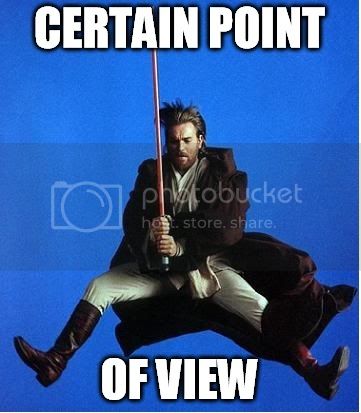Certain point of view is right. Certain point of view. Certain point of view. Everybody has their certain point of view.
Can we all agree to disagree and lock this thread to prevent another drawn out, ten million page debate on morality? I swear, Force and Destiny is such a trigger subject.
